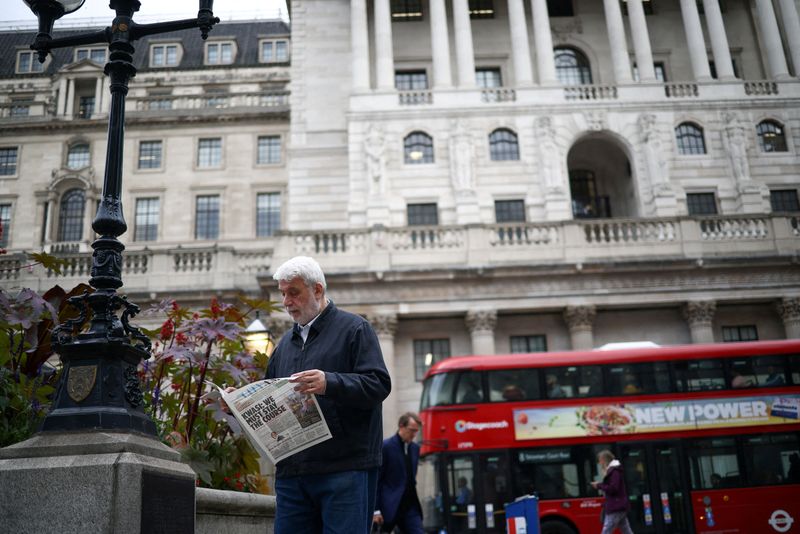By Geoffrey Smith
Investing.com -- U.K. government bond yields surged again on Thursday, after the small print of new Treasury spending plans revealed the rising cost of years of quantitative easing by the Bank of England.
The Treasury has earmarked 11.18 billion pounds ($12.5 billion) to cover losses made by the Bank of England on the portfolio of bonds as it prepares to start unwinding its purchases of recent years, according to a Bloomberg report - a stark reversal of the profits that flowed from that portfolio to the government in recent years.
The extra spending commitment implicit in the new plans - which will likely force the government to borrow more - comes at a particularly awkward time. The cost of such spending rising due to the global rise in market interest rates. Moreover, the government has only just jettisoned the tax-cutting agenda of new Prime Minister Liz Truss in shambolic haste, after her plans for unfunded tax cuts triggered a violent selloff in the bond market.
The rout had threatened to destabilize the U.K.'s financial system and forced the Bank to intervene to calm markets by buying Gilts until the policy was abandoned - effectively negating its own attempts to tighten monetary policy and bring down inflation. It stopped buying bonds on Friday and reverted to a system of lending money through repo operations, whose impact on the money supply is easier to contain.
By 05:45 ET (09:45 GMT), the yield on the benchmark 10-year Gilt was up 5 basis points at 3.91%, after initially rising above 4% again in response to the news. The market steadied after the Bank of England announced only low demand for its repo operation, signaling that the stress level in U.K. markets has ebbed considerably.
While the market has welcomed the government's policy U-turn, Gilt yields continue to embed a higher-than-normal premium for political instability. In part, that's because the ruling Conservative Party's divisions have become more obvious and more unmanageable since Friday, when Truss announced the change of direction, firing her Chancellor of the Exchequer, Kwasi Kwarteng in the process. Another senior minister, Home Secretary Suella Braverman, resigned on Wednesday in what appeared to be an attempt to force the collapse of Truss's administration.
